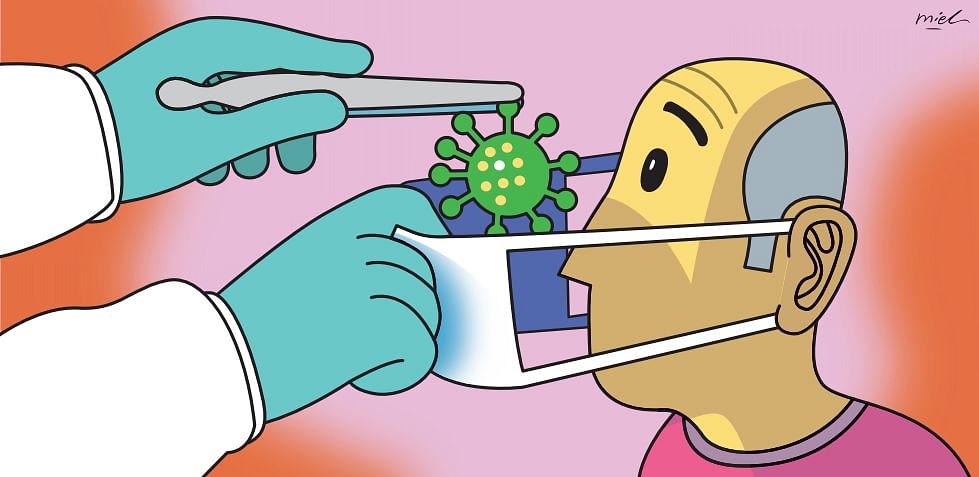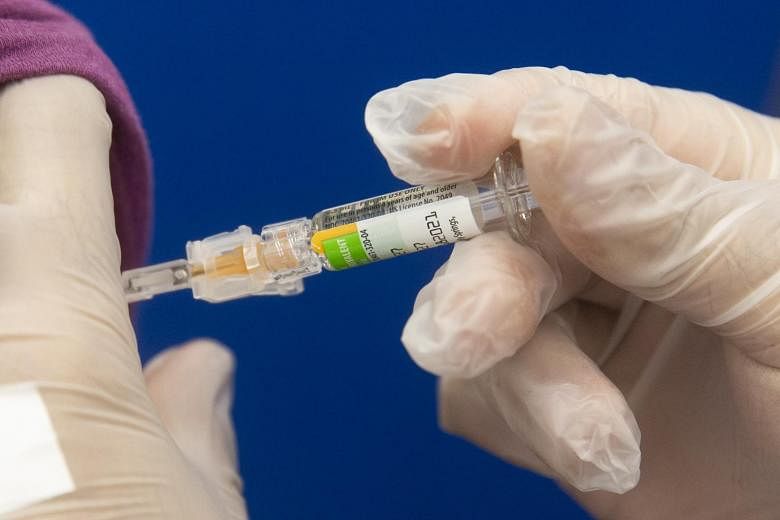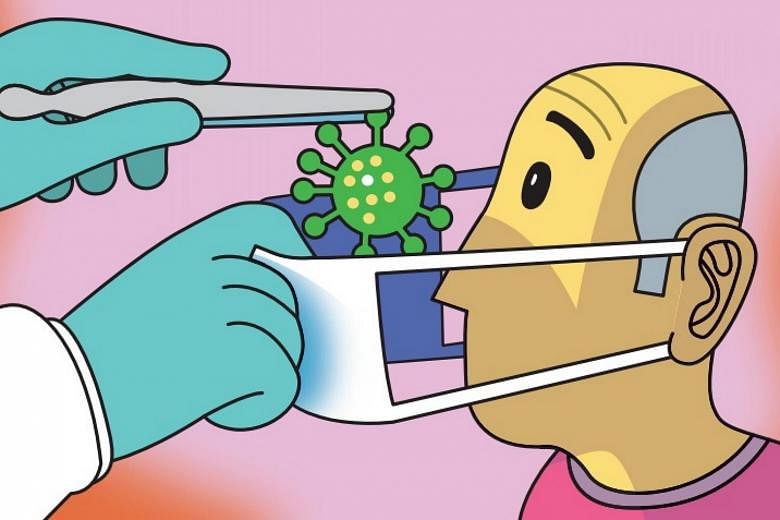What we most fear these days is the unending rampage of the Covid-19 virus; what we most dream of is delivery from this ordeal and to have our old life back; and what we most dread is the unknowable future.
And who wouldn't, with 30 million infected, almost a million dead and a soul lost every 15 seconds? What we desperately want is a vaccine that will give us immunity and make us unafraid.
Vaccine development is complex and uncertain - there is still no vaccine for HIV. Under normal circumstances, it takes a very long time for a viable vaccine to move from animal studies to a series of human trials to regulatory licensure.
The human papillomavirus (HPV) vaccine - which prevents HPV-related infections and certain cancers - took 15 years to develop, while the chickenpox vaccine took 28 years.
But there is an unprecedented sense of urgency that the Covid-19 pandemic has generated. Scientists in research institutes and the pharmaceutical industry are racing to develop an effective vaccine; already, there are about 150 experimental vaccines at various stages of development in the pipeline internationally, of which 40 are in clinical trial.
The United States government has poured money into several vaccine candidates through its Operation Warp Speed initiative; one that is being developed by the National Institute of Allergy and Infectious Diseases and biotechnology company Moderna has started recruiting 30,000 volunteers for what is known as a Phase III, or efficacy, trial.
In this sort of trial, thousands of healthy adult volunteers are randomly assigned to two groups: One would receive the experimental Covid-19 vaccine, and the other (called controls) will receive a placebo. The participants do not know what they have received (a procedure known as "blinding").
They are monitored for side effects and tested for infection that might come their way as they carry on with their regular lives (whatever regular would mean at this time). By eventually comparing the rates of infection in these two groups, the efficacy of the vaccine can be determined.
Other than needing huge numbers of participants and time to recruit, screen and enrol them into the study, it is also very difficult to predict the end point of the trial, as it is dependent on the rate of infection.
If public health measures like wearing face masks and social distancing are working well, there would be low rates of transmission, and it could take a long time for enough participants to be naturally infected before any meaningful comparisons can be made.
Amid so much fear, suffering and desperation, there are many who feel that we cannot afford to wait that long in this extending and consuming catastrophe.
DESPERATE MEASURES
"Diseases desperate grown/By desperate appliance are relieved", said King Claudius when faced with a perceived threat to his kingdom in Shakespeare's Hamlet; or to put it more prosaically: Desperate times call for desperate measures.
In March, Professor Nir Eyal, a bioethicist at Rutgers University, published a paper with epidemiologists Marc Lipsitch of Harvard University and Peter Smith of the London School of Hygiene and Tropical Medicine, in The Journal of Infectious Disease.
The paper proposed a "human challenge study" where researchers would give healthy participants the experimental vaccine and then infect them with the coronavirus.
This would obviate the uncertain wait for a community-transmitted infection to happen, and thus allow the trial to be shorter and require far fewer subjects.
They recommended that volunteers should be healthy and young (from the age groups in which the risk of severe disease and death following Covid-19 infection is low). And if participants are recruited from hot spots with high transmission rates, they further argued, infecting them deliberately would not impose any significantly greater risk of exposure.
Furthermore, they would be quarantined, monitored closely, and would receive the best available care if they became ill.
But findings gleaned from studies on the young and healthy may not be applicable to the old and unhealthy.

In response to that, bioethicist-physicians Julian Savulescu and Dominic Wilkinson of the University of Oxford have proposed - unsentimentally and trenchantly - that elderly residents in nursing homes should be given an opportunity to participate in such challenge studies as long as they are mentally fit to know what they are doing, whether out of purely altruistic motives; or out of self-interest from fear of contracting the virus and wanting early access to a vaccine; or out of an old person's resigned fatalism of not caring if they die sooner.
The underlying ethical principle of challenge studies is founded on English moral philosopher Jeremy Bentham's doctrine of utilitarianism, which espouses that the right thing (or "the highest principle of morality") is to do whatever maximises utility - and "utility" means whatever produces happiness, and whatever prevents pain or suffering.
To frame it in the context of challenge studies: The number of lives risked (and possibly lost) would be justified as the potential number of lives saved would be far greater. Further, it could help end the current global pandemic faster, along with all that terrible strain to healthcare and economies.
But the notion of using humans as a means to an end by deliberately infecting them with a harmful pathogen is troubling.
Challenge studies have been done previously, including in testing vaccines for diseases such as cholera and malaria. But in those cases, there are proven drugs which can help rescue study participants if the vaccine doesn't work and the participants become sick.
Therein lies one of the ethical problems with a Covid-19 challenge study - there is currently no good treatment for the infection.
Prof Eyal and his co-authors have emphasised that "multiple measures would be put in place to ensure that, prior to consenting, potential participants fully comprehend the unusual risks involved in the study".
Informed consent is one of the core tenets of medical research. The consent must be voluntarily given, and prospective participants must understand what is being asked of them and what could happen to them - that is, they must be fully informed of the nature of the study, the procedures that would be administered, the potential benefits (if any) and the risks, as well as any compensation resulting from any harm.
Critics have pointed out that participants for any challenge study for a Covid-19 vaccine cannot be fully informed about the risks because too little is known about this new virus.
There are still too many uncertainties and, although it is not common, healthy young people have become critically ill and some have died. The long-term sequelae are also unknown.
PERILS OF INDIFFERENCE
Despite these risks, there has been a collective yet individualistic response to this crisis. A non-profit group called 1Day Sooner (so named because it has been estimated that speeding up vaccine development by one day would save 1,250 lives) has, to date, signed up more than 37,500 volunteers from 162 countries for such Covid-19 challenge studies.
But consider too another entirely different set of reactions - in the earlier part of the year when the pandemic was already, and obviously, rolling unstopping throughout the world, we were shown images of young men and women partying on the beaches of Australia, Texas and Florida despite the plaintive pleas of public health officials that they should take social distancing measures to protect not just themselves but other more vulnerable people.
A BBC programme showed students in Miami bent on celebrating their spring break. "If I get corona, I get corona," said one student. "At the end of the day, I'm not going to let it stop me from partying."
Although there is no moral comparison, those images made me think of a speech that Holocaust survivor and Nobel laureate Elie Wiesel gave in the White House in 1999 titled Perils of Indifference.
"Can one possibly view indifference as a virtue? Is it necessary at times to practise it simply to keep one's sanity, live normally, enjoy a fine meal and a glass of wine, as the world around us experiences harrowing upheavals?" he asked.
"Of course, indifference can be tempting - more than that, seductive," he continued. "It is so much easier to look away from victims. It is so much easier to avoid such rude interruptions to our work, our dreams, our hopes... Indifference reduces the other to an abstraction."
Leavening this dispiriting reckless indifference are the tens of thousands of young people who have signed up with 1Day Sooner - they are anything but indifferent.
Whether there will be human challenge studies for Covid-19 vaccines or not, that there are many young people who would put themselves in harm's way for the sake of others, and in such a time when self-preservation is the instinctive response of most people, it is something gladdening, bracing and edifying.
This pandemic has revealed our frightened helplessness, our callous disregard of others, our ignorant bravado, but also our resilience, our ingenuity, our heroism and selflessness.
Professor Chong Siow Ann, a psychiatrist, is vice-chairman of the medical board (research) at the Institute of Mental Health.



